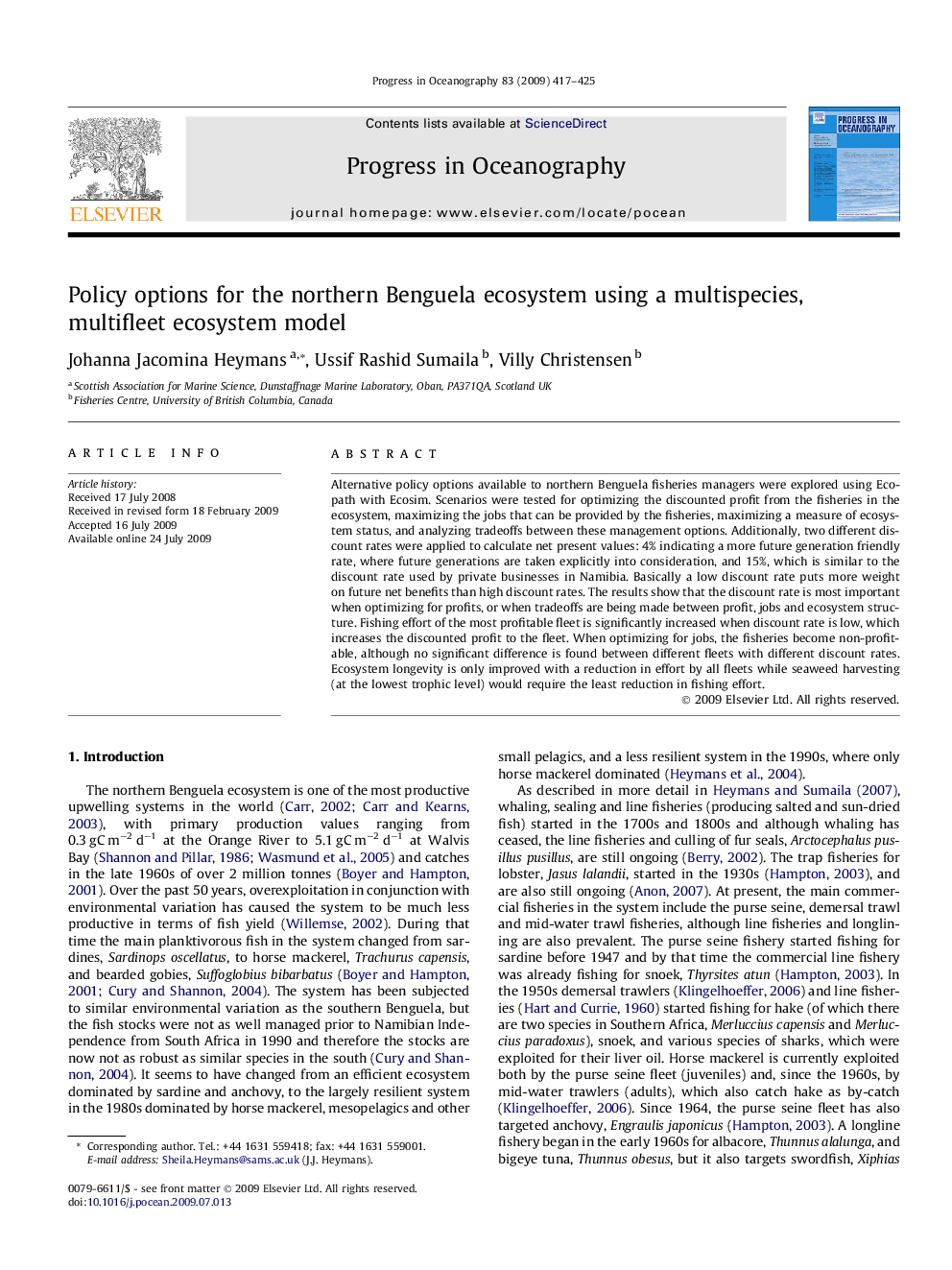| Article ID | Journal | Published Year | Pages | File Type |
|---|---|---|---|---|
| 4553484 | Progress in Oceanography | 2009 | 9 Pages |
Alternative policy options available to northern Benguela fisheries managers were explored using Ecopath with Ecosim. Scenarios were tested for optimizing the discounted profit from the fisheries in the ecosystem, maximizing the jobs that can be provided by the fisheries, maximizing a measure of ecosystem status, and analyzing tradeoffs between these management options. Additionally, two different discount rates were applied to calculate net present values: 4% indicating a more future generation friendly rate, where future generations are taken explicitly into consideration, and 15%, which is similar to the discount rate used by private businesses in Namibia. Basically a low discount rate puts more weight on future net benefits than high discount rates. The results show that the discount rate is most important when optimizing for profits, or when tradeoffs are being made between profit, jobs and ecosystem structure. Fishing effort of the most profitable fleet is significantly increased when discount rate is low, which increases the discounted profit to the fleet. When optimizing for jobs, the fisheries become non-profitable, although no significant difference is found between different fleets with different discount rates. Ecosystem longevity is only improved with a reduction in effort by all fleets while seaweed harvesting (at the lowest trophic level) would require the least reduction in fishing effort.
